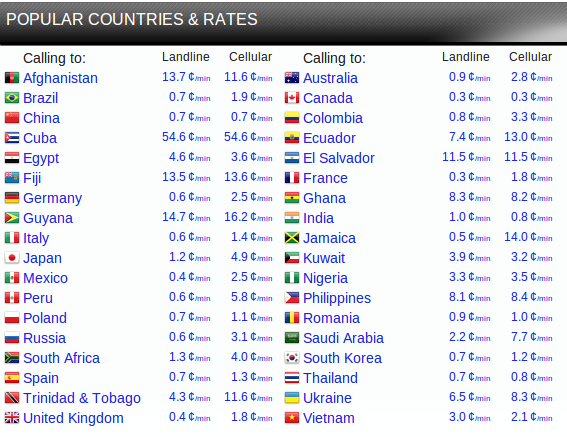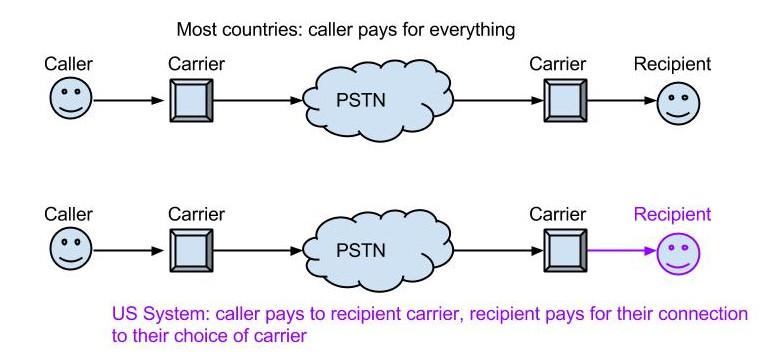When people find out that you pay for incoming cell phone calls in the US, it seems illogical and likely part of the various issues where the country is dysfunctional (eg politics, health care, rampant hypocrisy). However there are good reasons for this system and issues in your own country you may not be aware of.
Whenever a phone call is made there are termination rates - the amount paid to the operator on the receiving end [1]. In most countries the termination rates for cell phone calls are higher than for landlines (note the termination rate covers where the call ends up - it isn't related to where the call is from - cell, landline or other).
This means that when a call goes to a cell phone, it costs more than going to a landline. Somebody ends up paying that difference.

Screenshot from a random calling card site. Note that these costs include the costs to route the call to the country, in addition to the landline or cellular termination. ie the termination fees have an even larger disparity than shown here.
Look at the United Kingdom or France where the cellular rates are considerably higher than landline rates [2]. Most countries decided make the caller pay for these higher rates, but the caller had to know they were doing that. Consequently they had to allocate new area codes for cellular (these are the UK ones). Every person making a call has to know which codes are which, and some knowledge of the different rates [3]. Receiving parties can't port non-cellular numbers. Cellular carriers have no incentive to reduce their rates.
In the US the difference between landline and cellular is paid by the receiving party. The North American Numbering Plan means area codes can't change from 3 digits without massive disruption, and that there aren't enough spare area codes even if they wanted to assign them to cellular (eg 36 area codes would be needed to get one number for every American and Canadian, and have some pattern to recognise the codes).
So is the US system better? It has a number of advantages:
- People don't have to remember even more rules about area codes and differing charges
- There is greater incentive to reduce the cellular extra prices since you are affected by every minute of incoming and outgoing calls. With the model used in other countries, the termination rate is set by the receiving customer's carrier and that customer has far less visibility or bargaining power over the rate.
- Cellular was easily rolled out without disruption. An existing number could switch to cellular and no one else would have to know or care. If you were a business (eg a plumber) you didn't have to worry about people calling you fretting over getting charged more for the call than your competitors.
- Numbers are easily portable. You can switch any number to use cellular. Countries using the other scheme can have portability but usually it is limited to cellular area codes only.
- The method used to connect the number with the recipient is only a concern of the recipient.
The US system does make sense, and does have a number of advantages. Someone is always paying for the difference between landline and cellular virtually everywhere.
The US carriers also charge for incoming SMS. This is more a case of being able to get away with it, mixed with some of the reasons above. However most plans these days are for unlimited voice and SMS, with the big charges for data consumption.
| [1] | There are various exceptions like freephone/toll free numbers, premium services etc. |
| [2] | You can also tell which countries have a poor landline infrastructure and cellular competition. |
| [3] | You already have to know which area codes have no extra charges, which have minimal charges and which are premium. For example UK folks have to be aware of this list. |
